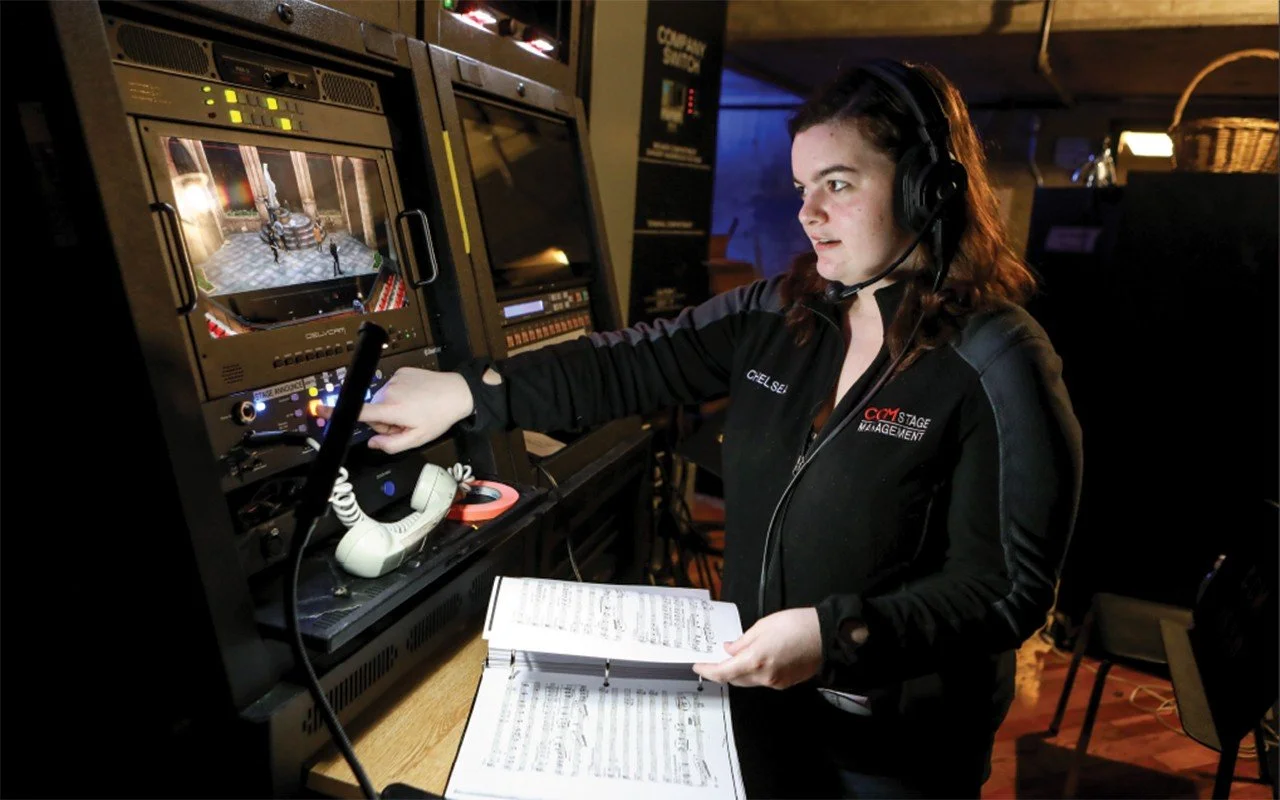5 Signs Stage Managing Might Be For You
(Photo: University of Cinncinati)
Not everyone dreams of being center stage. Some of us thrive behind the scenes, quietly making sure everything runs smoothly. And in the world of theatre, stage managers are the glue holding productions together. If you’ve ever wondered whether stage managing might be your calling, here are five signs it could be a perfect fit.
1. You’re a natural organizer
If your idea of a good time includes color-coded calendars, detailed to-do lists, and knowing exactly where everything is at all times, you already have one of the core traits of a great stage manager. From managing rehearsal schedules to calling cues, stage managers live in the world of logistics.
If you’re the person your friends go to when they need someone to take charge, this might be your backstage calling. The best stage managers are always thinking ahead. They consider every possible scenario, prep backup plans, and anticipate the needs of the team. If you’ve ever packed a full emergency kit just in case, even for a picnic, you might be built for the booth.
2. You stay calm when things go sideways
Things will go wrong in theatre. Props break. Actors forget lines. Scenery falls over. But if your instinct is to take a deep breath and calmly figure out a solution instead of panicking, you’re already thinking like a stage manager. They are the steady hand that keeps the show on track, even when chaos strikes.
If people often tell you that you stay calm under pressure, take that as a sign. And it’s not just about being calm. It’s about being decisive. Stage managers don’t have the luxury of freezing up. If something falls apart mid-show, they need to assess the issue, communicate clearly, and keep everyone safe and focused. That kind of poise is essential.
3. You’re a great communicator
Stage managers are the nerve center of any production. They relay information between the director, designers, actors, tech crew, and front of house. Clear, respectful, and timely communication is essential. If you’re the type of person who knows how to say the right thing, when to say it, and how to make sure everyone feels heard, you’re already ahead of the game.
A good stage manager knows how to speak everyone’s language, whether it’s helping a nervous actor calm down before an entrance or sending a lighting cue sheet to a designer with perfect clarity. Communication is not just about words. It’s about tone, timing, and building trust.
4. You genuinely love theatre but don’t need the spotlight
Not everyone wants to act, sing, or dance. Some people just love being part of the process, helping build something magical from the ground up. Stage managers are involved from the first rehearsal to the final curtain call. They see the big picture.
If the thrill of production excites you more than applause, you may have found your home in the booth. Being backstage means you get to experience the entire production from every angle, watching scenes take shape and actors grow into their roles. It’s a different kind of reward. Quiet, consistent, and deeply fulfilling. And for many, it’s even more satisfying than applause.
5. You care about safety and respect
Stage managers are also the protectors of the space. They make sure everyone is safe, both physically and emotionally. That means double-checking that set pieces are secure, advocating for breaks when needed, and ensuring the rehearsal room stays a respectful and inclusive place.
If you’re someone who looks out for others and is not afraid to speak up when something feels off, that’s stage management gold. You’re the person who makes sure no one is overworked, overheated, or overlooked. You spot the slippery platform before someone steps on it. You notice when someone’s energy is off and check in with them privately. You lead with kindness, and people feel it.
Stage managers don’t always get the credit they deserve, but ask any actor or director and they’ll tell you: a great stage manager is worth their weight in gold. If any or all of these signs sound like you, maybe it’s time to stop wondering and step into the headset. You might just find your perfect role offstage.
